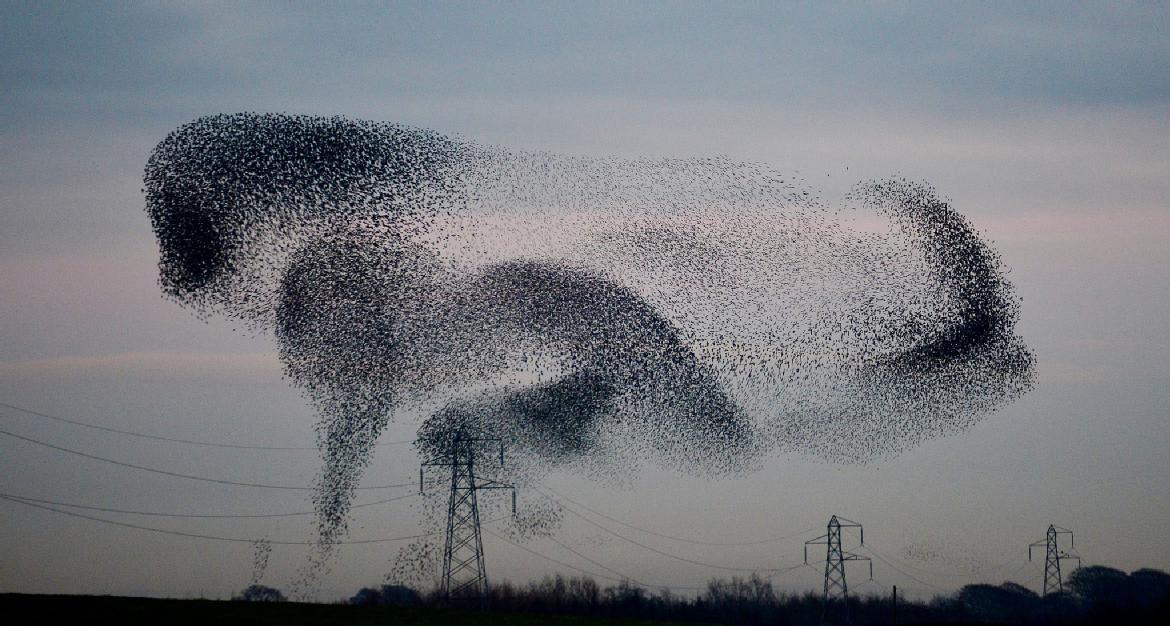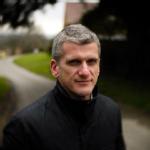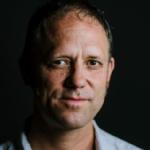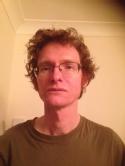MA in Environmental Humanities

Explore urgent environmental issues from multiple perspectives
Our new MA in Environmental Humanities introduces you to a vital field of study for the twenty-first century, housed within one of the leading English departments in the world.
The MA in Environmental Humanities offers a sustained encounter with the critical and creative ways in which the study of culture can enhance our understanding of environmental relations and ecological change. This course will expand your awareness of debates around the climate emergency, the Anthropocene, the Sixth Extinction, biodiversity and habitat conservation, historical and emergent energy regimes, sustainability, ecological imperialism, social reproduction and environmental justice. Drawing on perspectives from ecocriticism, ecology, the history of capitalism, ecopoetics, climate studies, postcolonial studies and energy humanities, our MA will deepen your critical comprehension of key ecological concepts, introduce you to institutional and creative practices for engaging with environmental research, and develop your competence in analysing the implications of the global environmental crisis.
By the end of the course, you'll be well-positioned for further study or employment with the insights and transferable skills you develop through a combination of seminars, research projects and fieldwork.
Key facts
Qualification: Master of Arts (MA)
Duration: 1 year full-time, 2 years part-time
Next intake: October 2025
Contact: Dr Nick LawrenceLink opens in a new windowLink opens in a new window; Dr Jonathan SkinnerLink opens in a new windowLink opens in a new window; Dr. Mike NiblettLink opens in a new windowLink opens in a new window; Professor Graeme MacdonaldLink opens in a new windowLink opens in a new window
Autumn term:
- Core module, assessed by coursework*
- 1 x 30 CAT modules, assessed by coursework*
Spring term:
- 2 x 30 CAT modules, assessed by coursework*
Spring/Summer terms:
- 16,000 word dissertation (worth 60 CATS) or equivalent fieldwork project
*You can take one 30 CATS worth of modules from outside the department, including from the Institute for Advanced Teaching and Learning (IATLLink opens in a new window).
Modules on offer for the current year include:
Petrofiction: Studies in World Literature
World Literature in the Anthropocene
Core Module: Critical Environments
Critical Environments introduces key topics, concepts, methodologies and theoretical debates in the emergent field of environmental humanities, with special attention to its interdisciplinary origins. It allows students to navigate their own subsequent pathways through the MA in Environmental Humanities, depending on individual research interest. You will develop an informed perspective on a variety of areas, from debates over nature to the cultural registration of natural ecologies, histories and trajectories of pollution and waste, ecopoetics, the emergence of the Anthropocene, the energy humanities, ecological imperialism and more, all analysed through a world-ecological lens unique to Warwick Environmental Humanities. The module will provide a focused understanding of the cultural challenges in responding to such topics as climate change, environmental despoliation, species extinction, media ecology and truly sustainable futures.
Dissertation (see below for further detail)
The Dissertation offers you the opportunity to pursue your own research interests. You can develop any idea you’ve discovered in your modules or write on a completely new topic that matters to you. Our students choose an array of topics within the broadly conceived boundaries of ‘environmental humanities’: we’ll discuss your plans with you to make sure an available member of our teaching staff can support your topic.
Students often use their MA dissertations as springboards for Ph.D projects and have sometimes gone on to publish their work in scholarly journals.
You are also able to fulfil the dissertation requirement by opting for an extended fieldwork project, which will allow you to carry out your research using a combination of data-gathering and written analysis.
Optional modules
These vary from year to year, but the list below gives you a flavour of the kinds of topics likely to be open to you:
- Petrofiction: Studies in World Literature: Explore the literature of energy and natural resources through the study of various genres from around the world. Here you will take in theatre, cinema, documentary and photography, all with oil and its social meanings at their core, and interpret them within the wider rubric of ‘petroculture’ in order to reveal international patterns in petroleum's form and content.
- The Caribbean: Reading the World-Ecology: This module aims to familiarize students with ecologically-oriented approaches to Caribbean literature, as well as with the critical debates surrounding world literature, ecocriticism, and environmental history. In particular, you will explore the concept of world-ecology and consider its potential as a methodology for reading texts from across the Caribbean archipelago.
- World Literature in the Anthropocene: Get to grips with the debates surrounding the ‘Anthropocene’ and the origins of the environmental crisis, including coverage of capitalist history, race and colonialism, energy, the Sixth Extinction, sacrifice zones, the world-ocean, media ecologies and the effects of climate on culture.
- Ecopoetics: An immersive, practical and theoretical orientation to the major 'compass points' in ecopoetics, including sounding, conceptual and procedural work, research and documentary poetry, situationist practices, boundary work/ investigation of systems, and poetics of relation.
- Early Modern Ecologies
- Culture and Global Sustainable Development
- Ecological Futures: Transdisciplinary Approaches
- Ecologies: Science, Media and Culture
- Managing Creativity for Sustainable Development
- Urban Data
- Media, Policy and Markets
Outside modules
You may also take one 30 CATS module from outside the Department as part of your course.
For example, you might want to study in the departments of Global Sustainable Development, the Centre for Interdisciplinary Methodologies, History, Film, Modern Languages, Sociology or Philosophy, or choose one of the modules offered by the Institute for Advanced Teaching and Learning (IATL).
Dissertation
Alongside your four modules, you will have the chance to pursue your own interests in a long-form piece of research – either a dissertation (16,000 words) or equivalent fieldwork project. This is an opportunity to develop a new idea from one of your modules into something longer. Alternatively, you could develop an idea first formulated as part of your application to the Warwick MAEH.
You have free rein regarding the dissertation, within the broadly conceived boundaries of 'Environmantal Humanities', although your subject should be open to supervision by an available member of the teaching staff and must be feasible in terms of resources to be accepted.
MA students often use their dissertations as springboards for further research through the Ph.D, and have sometimes gone on to publish parts of their work in scholarly journals.
You will attend a series of workshops in the autumn term designed to help shape your general ideas into a feasible proposal. You will submit a full proposal towards the end of the autumn term and be assigned an appropriate supervisor. You will begin preliminary work on your dissertation in the spring term.
The modules mentioned above may be subject to change. Please read our terms and conditions for more detailed information.
Our main staff involved in this course are listed below. While you're writing your dissertation you might work with any relevant academic in our departmentLink opens in a new window.

Dr Nick LawrenceLink opens in a new window
My research and teaching interests include the project of theorising world-literature in the Anthropocene; global modernism and the poetics of world-ecology; ecology and labour in American literature and culture; eco-Marxism; critical theory; environmental movements and theories of degrowth. These interests are reflected in three current studies: Sacrifice Zones: Neoliberal Culture and the Limits to Capitalist Nature, on the co-production of weird nature and weird culture in contemporary literary responses to capitalist crisis; Collaborations with Nature, an examination of the ecological roots of Frankfurt School critical theory; and Degrowth Imaginaries, a preliminary survey of cultural prefigurations of a world order beyond the present regime of open-ended accumulation, extractivism and ecocide. I'm a member of the Warwick Research Collective (WREC), which in 2015 published Combined and Uneven Development: Toward a New Theory of World-Literature (Liverpool University Press) and which is currently developing a project on the climate crisis and world-literary study.
Professor Graeme MacdonaldLink opens in a new window
Current research interests include Resource Culture in World Literature/Globalisation; Energy Humanities and Petrofiction; Science Fiction and Ecocriticism; Modern and Contemporary Scottish and British Culture. I am editor of Scottish Literature and Postcolonial Literature (EUP 2011) and Post Theory: New Directions in Criticism (EUP, 1999). I have recently edited a new edition of John McGrath's play The Cheviot, the Stag and the Black, Black Oil (2015) Currently preparing a monograph, Petrofiction: Oil and World Literature. I am a member of WreC (Warwick Research Collective), who work on new ways to think about World Literature/Literature in the World. We have published a co-written monograph on Peripheral Modernism and World Literature: Combined and Uneven Development: Toward a New Theory of World Literature (LUP: 2015) I am at present Co-Investigator on the RSE Research Network, Connecting with a Low Carbon Scotland (2016-18)

Dr Jonathan SkinnerLink opens in a new window
My main interests are ecopoetics and contemporary poetry and poetics (mostly North American, but with an international scope and emphasis). I have published critical essays on Charles Olson, Michael McClure, Ronald Johnson, Lorine Niedecker, Mei-mei Berssenbrugge, and Bernadette Mayer, translations of French poetry and garden theory, essays on bird song from the perspective of ethnopoetics, and essays on horizontal concepts such as the Third Landscape. Currently, I am writing a book of investigative poems on the urban landscapes of Frederick Law Olmsted, editing an anthology of ecopoetics for a university press, and pursuing a creative-critical project in acoustic ecology, called Vibrational Communication.
|
Dr. Mike NiblettLink opens in a new window My research centres upon world literature, environmental history, and critical theory, with a specific interest in Caribbean and |
Research expertise
Our Department was ranked in the UK's top 5 in the 2023 Guardian League Tables and the 2023 QS World University Rankings placed us in the top 30 English departments in the worldLink opens in a new window.
Our staff are renowned experts across a broad spectrum of specialisms.
- See our staff profile pages for more information
- See our current PhD and MPhil students to give you a sense of the projects currently being pursued in our department.
Research groups
Our Department is home to several vibrant research groups and clusters, including the Warwick Research Collective (Materialist Studies in World Literature), as well as the Centre for EcopoeticsLink opens in a new window and the Critical Theory NetworkLink opens in a new window. With the Institute of Advanced StudyLink opens in a new window we co-host Warwick’s Environmental Humanities NetworkLink opens in a new window and have close ties to the Centre for Philosophy, Literature and the Arts, the Yesu Persaud Centre for Caribbean Studies, and many other ongoing research projects and collectives.
International conferences
Our Department is regularly home to major national and international conferences, including Women in World(-)Literature, Dispossessed: A Symposium on Marxism, Culture, Extraction and Enclosure, Floods and Flows: Changing Environments and Cultures, and Peripheral Postcolonialities.
Large library at the heart of campus
The University library includes substantial holdings of texts from across the arts and sciences, including Rare Books and Special Collections, and is home to the Modern Records Centre.
Interdisciplinary culture
Researchers and students in our Department regularly engage multi-disciplinary networks of academics working collaboratively across the University to respond to complex global challenges, through Global Research PrioritiesLink opens in a new window such as Connecting CulturesLink opens in a new window, EnergyLink opens in a new window, FoodLink opens in a new window, HabitabilityLink opens in a new window and Sustainable CitiesLink opens in a new window. Our Institute of Advanced Study, which co-hosts our Environmental Humanities NetworkLink opens in a new window, is dedicated to advancing new research ideas, characterised by strong interdisciplinarity, innovation and internationalisation. Interdisciplinarity also extends to our vibrant undergraduate community. Through our Institute for Advanced Teaching and Learning, we support interdisciplinary student research across a wide variety of subjects.
Regional and national connections
The University campus borders the city of Coventry, 2020-21 UK City of Culture, 10 minutes by rail to Birmingham New Street Station, and is approximately 15 miles from Stratford-upon-Avon, home to the Royal Shakespeare Company. We are just over an hour from London, home to world-class museums, galleries, and the British Library - the largest library in the world.
A lively graduate culture
You will have the opportunity to present your work at our annual Postgraduate Symposium and to participate regularly in the intellectual life of the Department, including its research seminars, reading groups, conferences and symposia, as well as across the University as a whole. We welcome as well the self-organising initiatives of PG students; remember, you are the University while you’re here.
A postgraduate English degree is a key route into Higher Education, research, and academic careers, which often require postgraduate qualifications. As part of English’s postgraduate community, you will join a department that values its graduate students and encourages them to become part of our thriving research culture.
The average mean salary for all postgraduates from Warwick is £39,500 per annum, and 93.7% are currently in work and/or further study (Destinations of Leavers from Higher Education).
Recent graduate destinations for postgraduate courses:
Civil Service Ministry of Justice; Coventry University; International Institute for Environment and Development; NewsQuest Media Group; Oxfam; Pan Macmillan; Royal National Lifeboat Institution; Royal Opera House; Royal Town Planning Institution; TeachFirst; The Times; University of Worcester; V&A Museum; Yale University Press.
Positions of our recent graduates from postgraduate courses:
Community and Events Fundraising Assistant; Content Executive; Editorial Assistant; English Teacher; Foreign Rights Assistant; Workshop Director; Writer and Researcher; Innovation and Enterprise Consultant; Journalist; Junior Account Executive; Marketing Manager; Publishing Assistant; Research Analyst; Social Media Analyst; TV Researcher; TV Runner; University Lecturer.
What personal and professional development opportunities and support are available?
- One-to-one academic mentoring support from your dissertation supervisor and personal tutors
- Support from the Centre for Arts Doctoral Research Excellence
- Opportunities to publish in PG student journals (Exchanges and Feminist Dissent)
- Postgraduate student conferences (Postgraduate Symposium, PG Arts Research Festival, and Café Academique, Arts Out: Annual Faculty of Arts Festival)
- Student societies (including the Warwick Literature Society)
- Masters Skills Program, Research Student Skills Program, Transferable Skills Program
- Arts Faculty workshop series
- Project, research and placement funding
Entry Requirements
65% (or equivalent) in an undergraduate degree in English literature or a related degree. All applicants are encouraged to provide a writing sample to demonstrate suitability for the course and in order to be eligible for any available departmental bursaries.
English Language Requirements
Band CLink opens in a new window
IELTS overall score of 7.5, minimum component scores of two at 6.5/7.0 and the rest at 7.5 or above.
Course Fees
See Student Finance
Scholarships
For information about how to fund your master's degree please consult our own graduate funding page and the Graduate School's list of available scholarships and bursaries.
Additional Course Costs
Students are expected to buy the set primary texts for each module they study.
Find out more about fees and funding on the University website.
If you have any queries about whether you are in time to apply, please contact the convenor.
All applicants should upload a writing sample of up to 3,000 words with their application. This will be used for the purposes of admission and for Departmental funding competitions.
We encourage all applicants to apply by the spring. International applicants should apply before June to ensure enough time for visas and processing. We accept home applicants through the summer. If you have any queries about whether you are in time to apply, please contact the convenor.
See how to apply for a postgraduate course at Warwick:
You may also like to see our Admissions Advice for International Students
What do our students say?
“Considering that I am studying the environment and all the terrible things that are happening to it, I feel strangely happy, happier than I have in years, even hopeful. I feel awake and alive. Looking at it directly, instead of burying my head in the sand, is invigorating ... I have given myself permission to think again, and in doing so, I notice, more and more, how much and how often this instinct is stifled. Education is powerful. It is valuable. It is worthy. We must guard it ferociously, for everyone.” (https://www.theguardian.com/education/2023/dec/17/fresh-thinking-after-20-years-why-i-have-gone-back-to-university)
Rebecca Nicholson, MA in Environmental Humanities, 2023-24

 nationhood, and class struggle in texts produced across the world-system. My 2020 monography
nationhood, and class struggle in texts produced across the world-system. My 2020 monography